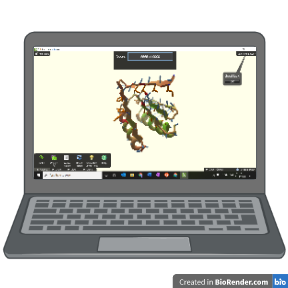Ever heard of a cool scientific discovery that made you want to participate in the scientific process? Finding a citizen science project could be the way to go! The term “citizen science” dates back to 1995, but has become more popular in recent years, perhaps due to increasing accessibility to technology or growing interest in professional science. It provides a way for non-scientists, “citizens,” to help researchers collect or analyze data for their projects. The subject and scope of these projects vary, from typing up the handwritten logs of old ships in order to analyze weather patterns to helping map the connections in our brains! Participation in a project also varies. For example, an astronomy project analyzing telescope data to find planets outside of our solar system is done completely online. Alternatively, there are some environmental science projects that involve getting outside to observe local plants and wildlife.
Citizen science projects can provide a lot of data to researchers which increases the chances of producing meaningful conclusions and might lead to publication. They also aid in science outreach by educating the public and increasing awareness of certain science topics. This seems like a win-win for scientists, but there are certainly challenges involved with taking on this type of crowd-sourcing. It takes a lot of resources to manage all of the volunteers and data associated with each project. In addition, because the volunteers come from a wide variety of backgrounds and experience levels, it is difficult to assess the quality of the data they’re submitting. For this reason, scientists need to think of tests and controls that determine data reliability. Another challenge is keeping the citizen scientists interested. Often scientists will come up with some sort of reward/ranking system for projects to emphasize the volunteers who have contributed the most, or they might really push the importance of the project itself and the results to keep people engaged.
Some examples of active citizen science projects can be found below:

The Dog Aging Project
The Dog Aging Project aims to determine what genetic and environmental factors affect how dogs age and for how long they remain healthy. If your dog is chosen to participate, you will be required to fill out a few surveys and might be given a few tasks or activities to complete with the dog. A few of the dogs in the study group will be given a drug as part of an effort to determine how that drug affects aging in dogs. This research will help us not only understand aging and diseases in dogs, but in humans as well! Photo by Jamie Street on Unsplash
Foldit
Like video games? Playing Foldit can satisfy your puzzle solving desires and help researchers develop new protein designs! Proteins are like tiny molecular machines that do everything in our body. Foldit is a game that allows players to move around amino acids, the building blocks of proteins, to satisfy certain criteria and make a design that would be stable if made in a lab. Researchers at the Institute for Protein Design at the University of Washington plan to pick the best designs made by Foldit players and create them in their lab for various applications. Helping create new protein designs never before seen in nature could help scientists come up with potential cures and vaccines, including ones for COVID-19 – and Foldit players could provide a crucial piece of the puzzle.

Folding@Home
Another protein folding project, and perhaps the easiest way to get involved, Folding@Home simply requires volunteers to download and run a piece of software on their computer. This project uses the power of volunteers’ personal computers all around the world to better understand how proteins fold and behave. Each user’s computer will be given a job which is part of a larger problem, and then the resulting data is transferred back to the database containing all results. The researchers who give out these projects aim to study diseases like cancer, Alzheimer’s Disease, and more recently COVID-19.
Interested in any of the projects above or perhaps another kind of citizen science? Check them out and get involved! It can be easy to start contributing and to control the amount of time dedicated to the project. A list of other projects can be found on Zooniverse, iNaturalist, and CitizenScience.gov.
Peer edited by Hope Thomson